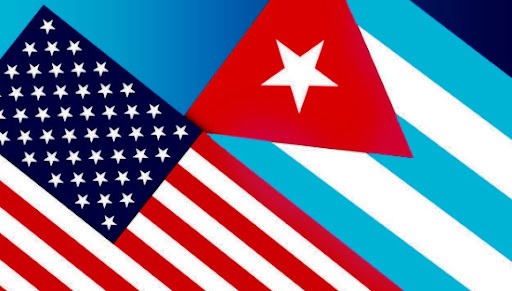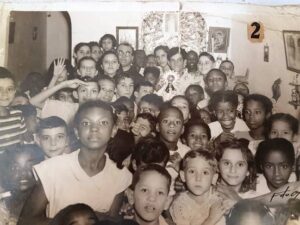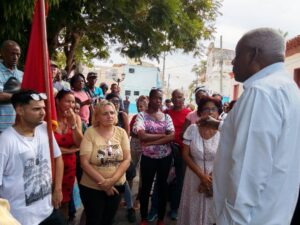Cuba and the United States: ten years of a dream cut short.

A decade after those events, the glorious return of the Five Heroes is overshadowed by the persistent reality of the blockade and the lack of significant progress in the normalization of relations between two countries that are so close, but at the same time so distant.

On December 17th, 2014, the history of relations between Cuba and the United States took an unexpected turn. After years of tension and hostility, a joint announcement from Havana and Washington D.C. surprised the world: the reestablishment of diplomatic relations between the two nations, accompanied by the return to Cuba of three of the Five Heroes of the Republic: Gerardo Hernández, Ramón Labañino and Antonio Guerrero and of the northern agent Alan Gross to the land of Uncle Sam.
Cuba, then under the leadership of Raúl Castro Ruz, had shown its support for dialogue and the search for a new meeting point with its former adversary and the United States, for its part, with Barack Obama at the helm, recognized the need to overcome the policies of the past and to strengthen understanding with its Caribbean neighbor.
The impact of this event was immediate and profound. For Cuba, it meant a crucial step towards the normalization of its international relations, the end of a policy of isolation imposed for decades. For the United States, it meant a review of its foreign policy in Latin America, an opportunity to improve its international image and a promising path towards mutual cooperation in areas such as health, education and trade.
The international community celebrated this triumph of diplomacy that renewed the hopes of many Cubans and Americans separated by policies of isolation and embraced the yearning for greater cultural, academic and tourist exchange between two nations in constant ideological discord, and the return of Gerardo, Ramón and Antonio to their homeland became the realization of the premonitory speech of the undisputed leader of the Antillean Revolution.
…ONLINE AUDIO
However, this initial optimism was dashed by the inherent complexity of the convulsive dispute between the Antillean and U.S. governments. Ten years after these events, the profound ideological disjunctions, the geopolitical interests at stake and the intensification of unjust coercive policies against the island have shattered the dreams of a progressive normalization between these countries, which, far from being consolidated, has only become more fragmented.
At present, the Cuba-U.S. relationship is at a point of stagnation. Although a limited dialogue has been maintained in some areas, the lack of political will on the part of the U.S. government for a profound change has prevented a true normalization, sanctions continue to affect the Cuban economy and ideological differences continue to dent the possibilities of a full understanding.
The arrival of Donald Trump to the presidency marked a significant setback in this process, as he reversed many of the policies promoted by his predecessor and, in addition to the tightening of the blockade and the inclusion of Cuba in the arbitrary list of countries sponsoring terrorism, he overturned what had been achieved in 2014 and generated more uncertainty and tension in the dispute.
Likewise, after the arrival of Joe Biden to the White House, hopes were renewed, however, and despite the fact that the president showed some interest in reviewing the U.S. policy towards Cuba, he has not implemented substantial changes and far from undoing or diminishing its negative impact, the restrictions and the blockade persist as barriers against the development of the island and the future of the bilateral relationship remains uncertain.
Undoubtedly, the events of December 17th, 2014 were a watershed in the volatile dynamics between the two territories. A decade after those events, the glorious return of the Five Heroes is overshadowed by the persistent reality of the blockade and the lack of significant progress in the normalization of relations between two countries so close, but at the same time so distant.
Written by Yadiel Barbón Salgado.




